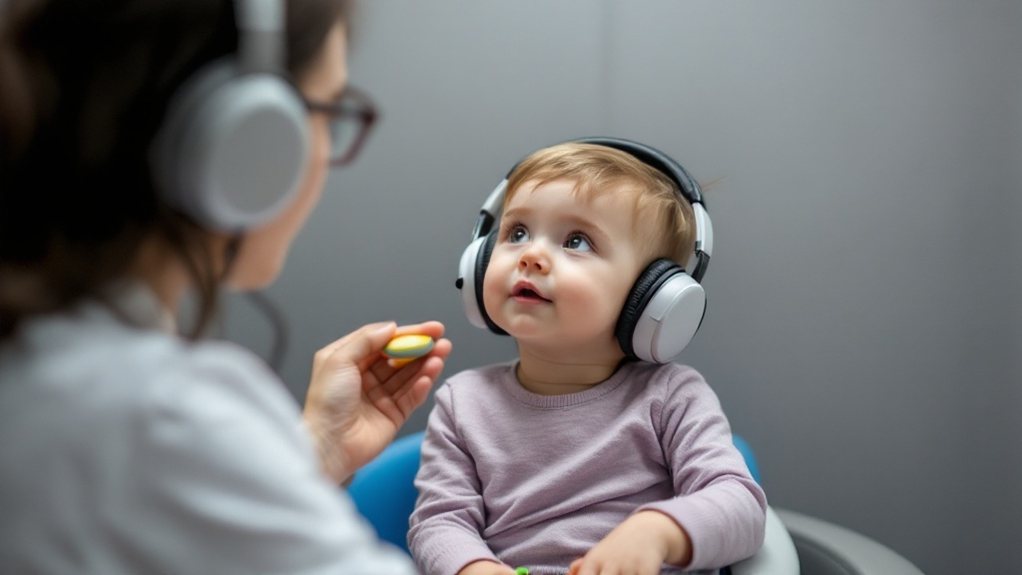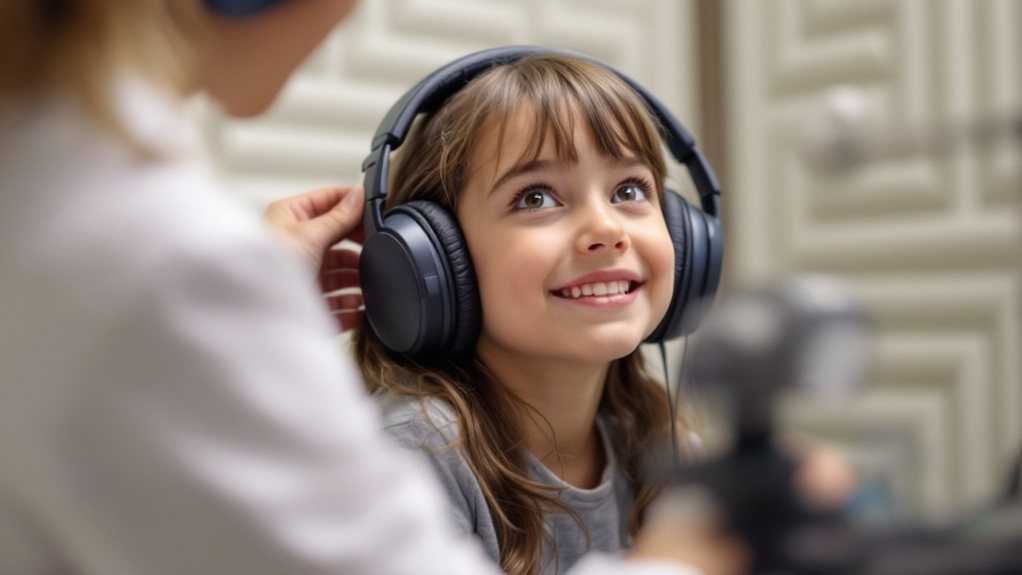Are you looking for Children Hearing Test Beaudesert?
Ready to take the first step towards better hearing?
Let’s talk!
Connect with us today! Fill out the contact form below to schedule your personalised hearing consultation at All Things Hearing. Our expert team is committed to guiding you on your journey to improved hearing health. Don't wait to enhance your quality of life. Reach out now – we're here to listen and help!
Follow us:
Our main hearing clinic is located in Greenbank and our visiting sites are located in Daisy Hill, Jimboomba, Parkinson, and Wishart.
You’ll want to get your child’s hearing tested as early as possible, even if they’re just an infant, with All Things Hearing providing their hearing services in the area. It’s crucial for identifying potential issues early on and addressing them promptly.
You should look out for signs like lack of response to sounds or difficulty understanding speech. If you’re concerned, don’t hesitate to consult an audiologist from All Things Hearing, as they provide their services in the area. They’ll guide you through the process, making it comfortable for your child.
As you move forward, you’ll discover more about the types of tests and what to expect, and how to make informed decisions about your child’s hearing health.
Hearing Test for Kids

How thoroughly do you understand the importance of a hearing test for kids? It’s crucial you recognize that hearing tests for kids aren’t just for those who show obvious signs of hearing issues. You should consider a hearing test for your kid if you’ve noticed any developmental delays or if they’ve been exposed to loud noises. Don’t think that hearing tests are only for older kids, as they can be done on infants too.
You’ll find that a hearing test can identify potential issues early on, allowing for timely interventions. It’s not difficult to get your kid’s hearing tested, and it doesn’t have to be a daunting experience for them. You can prepare your kid by explaining what will happen during the test, and most audiologists will make the process as comfortable as possible. Remember, early detection is key to addressing any hearing issues, so don’t hesitate to schedule a hearing test for your kid if you have any concerns.
Signs of Hearing Problems
You’ve likely considered a hearing test for your kid if you’ve noticed any developmental delays or concerns. If your child isn’t responding to sounds or can’t locate where sounds are coming from, it’s a cause for concern. You might’ve also noticed that your kid isn’t babbling or making cooing sounds, which are common signs of hearing problems in infants. As your child gets older, you may notice they’re having trouble understanding speech or following instructions.
You’ll want to pay attention to these signs, as they can indicate a hearing issue. If your kid is having trouble hearing, it can affect their ability to learn and develop language skills. You shouldn’t delay in getting your child’s hearing tested if you’ve noticed any of these signs. It’s better to catch any potential hearing problems early on, so you can take steps to address them. By doing so, you can help your kid develop to their full potential.
Types of Hearing Tests

Depending on your child’s age and suspected hearing issue, they may undergo one or more of several types of hearing tests. You’ll find that these tests can be broadly categorized into behavioral and physiological tests. Behavioral tests require your child’s participation and response to sounds. They might be asked to identify sounds or point to the source of a noise. Physiological tests, on the other hand, don’t require a response from your child.
These tests can include otoacoustic emission testing, which checks for sounds emitted by the inner ear, and auditory brainstem response testing, which measures the brain’s response to sound. You might also come across pure-tone audiometry and speech audiometry, which assess your child’s ability to hear tones and speech. It’s worth noting that some tests are more suitable for younger children, while others are better suited for older kids. Your child’s healthcare provider will determine the most appropriate test based on their specific needs and age.
Preparing Your Child
Preparing your child for a hearing test can be a relatively straightforward process if you’re well-informed about what to expect. You’ll want to explain the test to your child in a way that’s easy for them to understand, so they don’t feel anxious or scared. It’s also a good idea to prepare them for the equipment and environment they’ll encounter during the test.
You should dress your child in comfortable clothing and ensure they’re well-rested before the test. If your child is old enough, you can explain that the test will help determine how well they can hear. It’s essential to reassure them that the test isn’t painful and that they’ll be able to listen to sounds and voices during the test. You’re allowed to stay with your child during the test, which can help calm their nerves. By being prepared and informed, you can help make the hearing test a positive experience for your child.
Understanding Test Results

When your child’s hearing test is complete, the audiologist will review the results with you, and it’s essential that you understand what they mean. You’ll receive a report that outlines your child’s hearing ability, including any potential hearing losses or impairments. The audiologist will explain the results in a way that’s easy to understand, so don’t hesitate to ask questions if you’re unsure.
You’ll learn about your child’s hearing thresholds, which indicate the softest sounds they can detect. The results may also show if your child has any difficulty hearing certain frequencies or sounds. It’s crucial that you understand the results, as they’ll help you make informed decisions about your child’s hearing health. If any issues are detected, the audiologist will discuss possible treatment options with you. You may need to schedule follow-up tests or appointments to monitor your child’s hearing or address any concerns. By understanding the test results, you can take the necessary steps to support your child’s hearing and overall well-being.
Disclaimer
The content on our site is purely for education and should not be seen as an endorsement or recommendation of any treatments or products without a thorough hearing assessment and evaluation. Before starting any treatment, users should get advice from a professional and be fully aware of any potential side effects or risks related to the procedures. Any products we mention cannot be purchased by the public without first consulting a hearing health expert.
